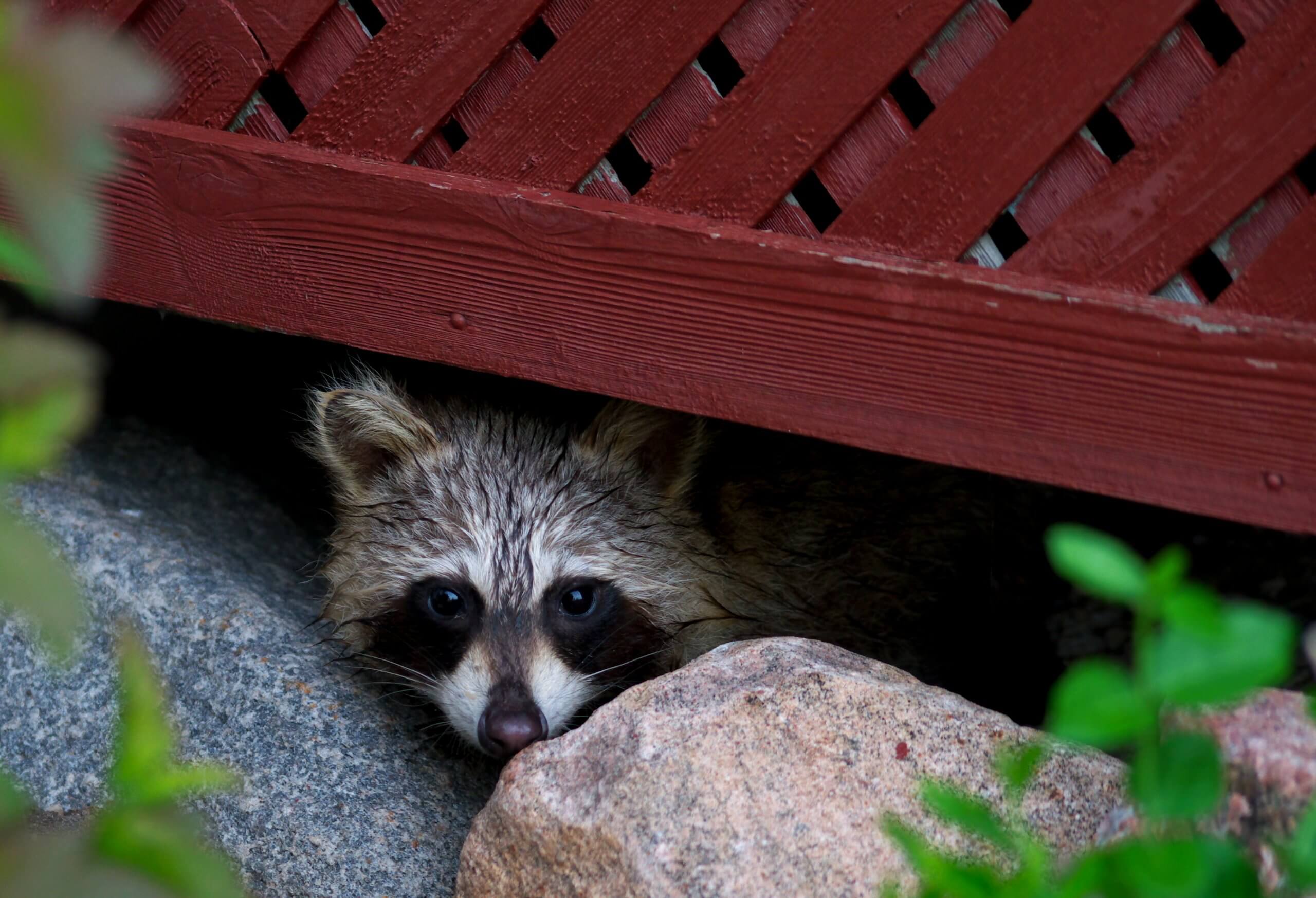Raccoons are common in cities and suburbs across North America. These are smart, adaptable creatures that have learned to thrive near humans. They den in yards and community gardens where they can steal our foods like berries at night. They are cute, but having your produce stolen by raccoons can be very frustrating. Raccoons also pose a threat to your health as they carry disease and leave piles of feces behind them.
If you suspect that there is a raccoon causing trouble on your property, contact a professional for raccoon removal Toronto or near you. A wildlife removal technician can find where the animal is hiding and remove it humanely, so no one gets hurt.
Here’s how you can help deter raccoons and evict them safely from your home.
Use a One-Way Door
If there are raccoons living in your attic or somewhere on your property, you can have them removed safely with a one-way door. This contraption looks a lot like a pet door, but it only swings outward. When the raccoons want to leave their den, they simply push their way through the door, then they cannot get back inside. Contact a wildlife removal professional to secure a one-way door to the entrance of the den.
The one-way door is the most humane solution because it does not involve the trapping or relocation of animals. No raccoons will be harmed in the process. They will simply find a new place to live.
The reason you should hire a professional to do this is because there may be some kits in the den that are still immobile. Accidentally separating a mother from her kits is inhumane and risks causing more damage to your property as the mother tries to break back in. A professional can remove the kits by hand and ensure that they are reunited with their mother.
Protect Your Plants
Raccoons are drawn to yards where they can find food. As omnivores, they will eat the fruits and vegetables that you grow, so it is important that you keep them off-limits. Visit your local garden centre and find row covers that you can use to cover your plants. You can also set up a temporary fence around your modern fence in the garden to help keep the raccoons out.
Raised garden beds are great for pest-proofing. If you have them, you can add lids to them that are made of mesh, which cannot be chewed or torn through. Consider upgrading your gardening setup so you can shield your plants from raccoons.
Harvest Foods on Time
Fruits and vegetables that have fallen to the ground will attract pests. If there is bad produce you don’t want to use in your cooking, pick it up anyway. Don’t let anything rot on the ground. Even if you have covered your plants, will attract wildlife to your garden.
Secure Your Garbage Cans
Raccoons are called “trash pandas” for a reason. They love garbage! If you haven’t already, switch to lidded garbage cans that can be locked shut. Then, secure them further with bungee cords or use heavy stones to make them even harder to open. Raccoons are smart and they have dexterous fingers that let them open simple locks. Clean your garbage every few weeks to remove odours and store them in a shed or garage until collection day.
Wildlife-Proof Your Deck and Shed

Raccoons like to den under decks and sheds. They dig under them, then make themselves at home for the winter or the summer. Keep them out by digging a trench along the sides of these structures, about a foot deep, then screw a thick mesh into their sides. The ideal mesh is 16-gauge, with gaps that are half an inch wide or smaller. Galvanized steel is preferred because it will not rust. Screw the material into the sides of your deck, porch, shed, or crawlspace, then bury it so that it is hardly visible. This will prevent raccoons and other creatures from digging underneath.
Use Natural and Electronic Deterrents
Raccoons, skunks, and squirrels dislike the smell of apple cider vinegar because it reminds them of predator urine. Spray some along the edges of your garden and try leaving a few vinegar-soaked rags around the garden to keep animals out.
You can also try using electronic deterrents. Set up a motion-activated deterrent that flashes light at anyone that comes near. Raccoons are nocturnal, so they are especially bothered by the bright light. Some deterrents also make an irritating, high-pitched sound that scares wildlife away.
Get Rid of the Bird Feeder
Finally, another easy and humane way you can deter raccoons is to get rid of your bird feeder. Watching the birds might be a lot of fun, but bird feeders are magnets for pests. Raccoons, rats, mice, skunks, and other forms of wildlife love bird feeders.

